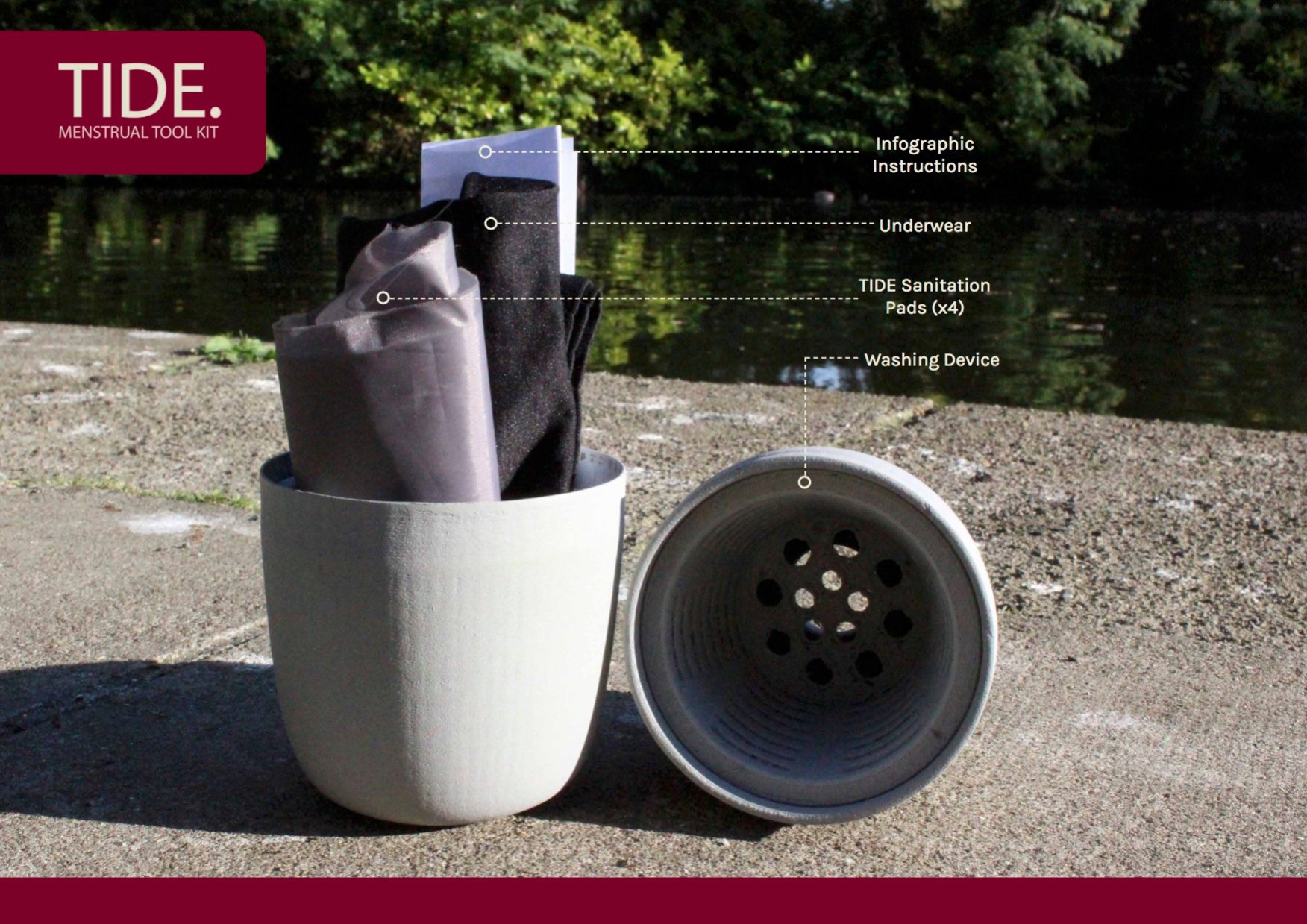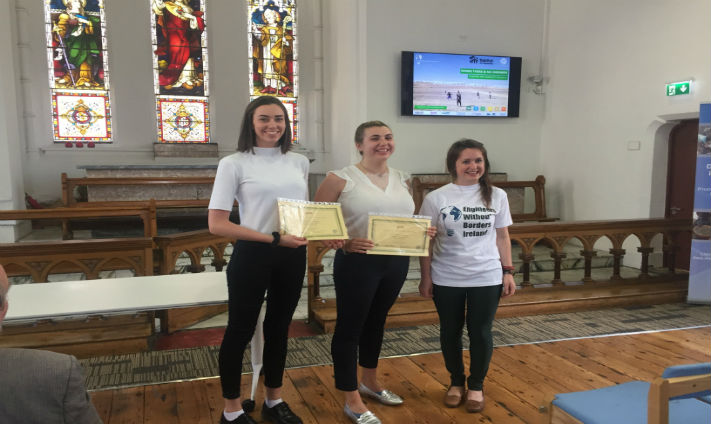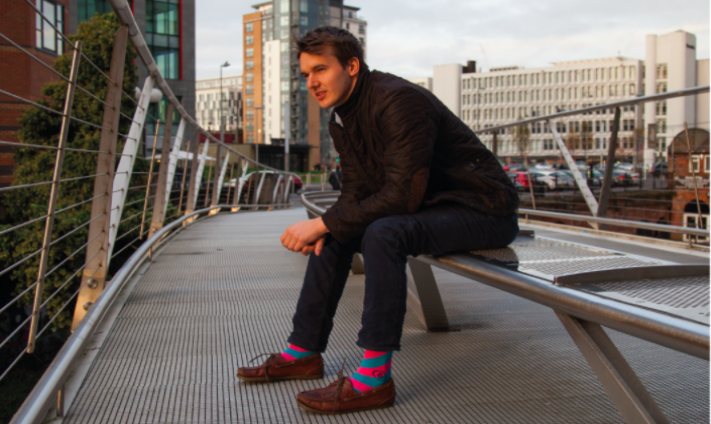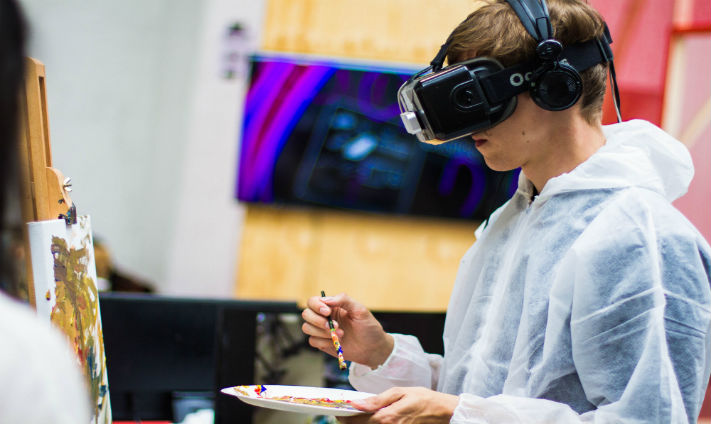It only takes one great idea to change the world.
DIT students Olivia Holbrook and Rachael Ryan had their very own lightbulb moment when brainstorming ideas for a class project.
They invented ‘TIDE.’, a menstruation toolkit that will hopefully change the lives of women all around the world.
We caught up with the duo to find out more about their success to date and what they plan to do in the future.
You won the ”Where There is no Engineer” competition. Tell us about the application process.
During the first semester of our final year in DIT, we had a module in ethical and sustainable design. We were given a brief of designing a project to aid those being forced to migrate from their homes. We initially focused on sanitation within refugee camps, before focusing solely on menstrual sanitation.
Where did the idea for your product come from?
It came from researching sanitary problems faced by refugees. We noticed that there was a crisis amongst refugee women. Often, the issues of access to resources and education about menstruation are overlooked. Which is why we began developing a toolkit to not only provide resources for each menstrual cycle but to also educate and empower women.
Through this research, we realised that menstrual sanitation has become an issue for most women and it is an issue which is more often than not overlooked.
We were fortunate that DIT provided us with an opportunity to focus on this project in college. With the help from both lecturers and colleagues, we had access to the resources we needed during this early stage.
Describe in a nutshell what your product does?
Over half of the displaced population are women, and they are suffering both physically and mentally. Girls are dying from a lack of resources, knowledge and awareness about menstruation. They do not have access to sanitary products or underwear. Instead, they use cloths, leaves, rags, or tin cans.
‘ TIDE.’ is a menstrual toolkit designed for displaced women. The toolkit includes four reusable sanitary pads, a washing device, underwear and infographic instructions to avoid language barriers. One kit will be supplied per woman and it will last for 6.25 years.
When not in use, the pads can be stored within the washing device. The ‘TIDE.’ menstrual toolkit is designed to provide a reusable and universal solution for refugee women. Along with this, it also creates a safe environment within refugee camps for women to learn about menstruation. The aim of this community aspect is to address the taboo issues associated with menstruation while providing an education to all those who are displaced from home.
 What’s been your biggest achievement to date?
What’s been your biggest achievement to date?
We’ve been lucky enough to win numerous competitions throughout our time in college. All of which have been great achievements.
We have both been offered scholarships to attend the Asia Pacific Innovation Academy this summer in China, which is a great honour, but we still feel winning the WTINE competition is our biggest achievement.
Winning this competition has given us the platform we need to make this product a reality, which will help women across the world. We will be heading to a refugee camp later in the year to implement our project alongside Concern and Engineers Without Borders. We are ecstatic to get the opportunity to make a difference in the lives of refugee women.
What’s been the biggest challenge?
Creating a product which would be beneficial to diverse cultures. It’s no secret that forced migration affects millions of people, all from different backgrounds and countries. Therefore, developing the toolkit to be accommodating to as many various cultural beliefs as possible was a huge challenge for us. We spoke to different groups of migrant and refugee women, who guided us through these challenges and kept the project driving forward.
Has the project opened your eyes to the refugee crisis?
Yes, this project has made us realise the severity of the refugee crisis. An aim of the ‘Sustainable and Ethical Design’ module created in DIT is to generate awareness of crisis situations such as this one. This allows us to help be a part of the solution. We hope with our project we can help to highlight to others the plight of females in the refugee crisis.
 Your product is for women, do you think their needs are often forgotten about in product design?
Your product is for women, do you think their needs are often forgotten about in product design?
We do not think the needs of women are forgotten about. However, the needs of women in terms of menstruation can be overlooked, especially in crisis situations. There is a taboo around menstruation, even here in Ireland. This taboo can result in a lack of resources and education for girls and women, in particular for those being forced to migrate. This is why we used our product design skill set to help develop a product focused solely on women’s menstrual needs.
What’s your ultimate ambition?
To use our skills in design to create products, services and projects which will ultimately make a difference in people’s lives.
What’s the one thing you wish people knew about your project?
The refugee crisis has resulted in the term “refugee” becoming a label for a figure or statistic. With this project, we focused on women and girls and advocating for their basic sanitary rights. We want people to look at our project and remember that at the end of the day those forced to migrate are still people and not statistics.
What advice would you give to someone who wants to get involved with product design?
We would encourage anyone who is interested to pursue their career in design. Throughout our time studying and working in design, mainly in DIT, we have developed a wide skill set. These skills are transferable and applicable to a range of different disciplines.
Read more interviews with social entrepreneurs here.










